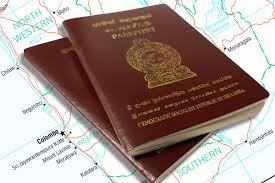
In the realm of international travel, securing a United States visa is a pivotal step for individuals seeking entry into the country. The process involves meticulous scrutiny, and one crucial element in this journey is the role played by Customs and Border Protection (CBP). CBP serves as the gatekeeper, ensuring that only eligible individuals enter the United States. In this comprehensive guide, we delve into the intricacies of CBP, shedding light on its functions, responsibilities, and the crucial role it plays in the visa approval process. WHAT IS CUSTOMS AND BORDER PROTECTION FOR US VISA
Customs and Border Protection: An Overview
At its core, Customs and Border Protection is a federal agency under the Department of Homeland Security (DHS). Established in 2003, CBP amalgamated various border and security functions, including the U.S. Customs Service, the Immigration and Naturalization Service (INS), and the Animal and Plant Health Inspection Service (APHIS). The primary mission of CBP is to safeguard America’s borders and facilitate the flow of legitimate travel and trade.
The Gateway to America: Visa Application Process
Before delving into the specifics of CBP’s involvement in the visa process, it is crucial to understand the broader context of obtaining a U.S. visa. The journey typically begins with the submission of a visa application to the U.S. Department of State. Depending on the purpose of the visit, individuals may apply for various visa categories, such as tourist visas, work visas, or student visas.
Once the application is submitted and reviewed, approved applicants are granted a visa stamp in their passport. This stamp signifies official permission to travel to the United States, but it does not guarantee entry. The ultimate decision lies with the Customs and Border Protection officers stationed at the port of entry. RENEW USA VISA
Role of CBP in Visa Approval Process
Upon arriving in the United States, travelers must go through the customs and immigration process at the port of entry. CBP officers play a pivotal role during this stage, where they assess the admissibility of individuals seeking entry. The primary objectives of CBP officers are to ensure national security, enforce immigration laws, and facilitate lawful trade and travel.
CBP officers use a combination of technology, databases, and personal interviews to determine the eligibility of travelers. They examine the visa documentation, verify the purpose of the visit, and assess whether the traveler meets the criteria for entry. It is crucial to note that possessing a valid visa does not guarantee entry, as CBP officers have the authority to deny admission based on various factors.
Admissibility Criteria: What CBP Officers Look For
CBP officers evaluate several factors when determining the admissibility of an individual into the United States. These factors include:
- Valid Visa: CBP officers verify the authenticity and validity of the visa. Any discrepancies or issues with the visa documentation can lead to further scrutiny.
- Purpose of Visit: Officers assess whether the traveler’s stated purpose aligns with the visa category. For example, a person with a tourist visa should be visiting for leisure and not for work.
- Criminal History: CBP conducts background checks to identify individuals with criminal records. A history of certain crimes may result in inadmissibility.
- Health Status: CBP officers may assess the health of travelers to ensure they do not pose a public health risk. In some cases, individuals with certain medical conditions may be denied entry.
- Ties to Home Country: Officers evaluate whether the traveler has sufficient ties to their home country, such as employment, family, or property. Strong ties reduce the likelihood of the individual overstaying their visa.
- Financial Capability: CBP may inquire about the traveler’s financial situation to ensure they can support themselves during their stay without resorting to illegal activities.
Rights and Recourse for Denied Entry
If a traveler is denied entry by CBP, they have the right to know the reason for the denial. CBP provides a written explanation, and individuals can seek legal counsel to explore their options. While CBP decisions are generally final, individuals may have the opportunity to reapply for a visa after addressing the issues that led to the denial.
It’s important to note that CBP decisions are not influenced by race, religion, gender, or nationality. The evaluation process is based on objective criteria and the individual circumstances of each traveler.
Conclusion: Navigating the CBP Landscape for Successful U.S. Entry
In conclusion, Customs and Border Protection (CBP) plays a crucial role in the process of entering the United States with a visa. Understanding the responsibilities and criteria used by CBP officers can significantly enhance the chances of a smooth entry into the country. Travelers should approach the visa application and entry process with careful preparation, ensuring that all documentation is accurate and complete.
While CBP’s primary focus is on national security and enforcing immigration laws, it is essential for travelers to be aware of their rights and seek legal advice if faced with entry denial. By adhering to the guidelines and requirements set forth by CBP, individuals can navigate the gateway to America successfully and embark on their intended journeys with confidence.






Hey there would you mind sharing which blog platform you’re using?
I’m looking to start my own blog soon but I’m having a tough time choosing
between BlogEngine/Wordpress/B2evolution and Drupal.
The reason I ask is because your design seems different then most
blogs and I’m looking for something completely
unique. P.S Sorry for getting off-topic
but I had to ask!
I love it when people come together and share thoughts. Great site, stick with
it!